Search Results
Showing results 1 to 20 of 22

Cleaning with Dirt
Source Institutions
Learners build a filter from old soda bottles and dirt. They create polluted water, and pour it through their filter to clean it.
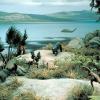
Dinosaur Homes
Source Institutions
In this activity about dinosaurs and survival, learners use scrap materials to create a miniature dinosaur habitat that includes a food source, water source, and shelter.

Dinosaur Sock Puppet
Source Institutions
In this activity about dinosaurs, learners first participate in a group discussion about where and when dinosaurs lived, how big they were, and who studies them and how.
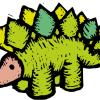
Dinosaur Dig
Source Institutions
This is an activity about dinosaurs, fossils, and the work of paleontologists. Learners use hand tools (paint brushes, scoops, and sifters) to unearth fossil specimens in tubs of birdseed.

Rocket Science
Source Institutions
Learners create a small explosion by collecting hydrogen and oxygen gas together and squeezing them into a flame.

Hanford at the Half-Life Radiation Calculator
Source Institutions
This quiz lets you estimate your annual radiation exposure.

Acid Rain
Source Institutions
In this chemistry demonstration, acid rain is simulated in a petri dish.
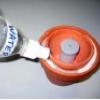
Cool It!
Source Institutions
Learners make a refrigerator that works without electricity. The pot-in-pot refrigerator works by evaporation: a layer of sand is placed between two terra cotta pots and thoroughly soaked with water.
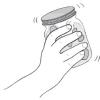
Shake and Break
Source Institutions
In this activity, learners will model the mechanical weathering and erosion of rocks in a stream or river.
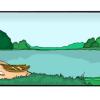
Rock Bottoms
Source Institutions
Learners add acid rain (nitric acid) to two cups that represent lakes. One cup contains limestone gravel and the other contains granite gravel.

The Best Dam Simulation Ever
Source Institutions
This online simulation game explores the different consequences of water levels on the Columbia River in the Pacific Northwest.
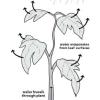
Plant Piping
Source Institutions
Learners build models to learn about the special cells and structures that plants use to move water from their roots up through the stems and leaves.
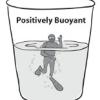
Oh Buoy!
Source Institutions
Learners work in pairs to design, construct, and test a device that exhibits positive, neutral, and negative buoyancy. They test a number of different objects in water to see if they sink or float.
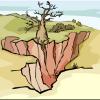
A Hole in the Ground
Source Institutions
Learners build models of sinkholes to gain an intuitive knowledge of their physical aspects.

Burning Issues
Source Institutions
Learners use a candle to investigate the products of combustion. When a glass rod is held over a lit candle, the candle flame deposits carbon on the rod.
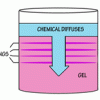
Liesegang Rings
Source Institutions
This display shows slow chemical reactions in colorful crystal formations known as Liesegang Rings. These reactions are similar to those forming the rings in agates.
Building a Community From the Ground Up
Source Institutions
In this activity, a group of learners work collaboratively to design and construct a paper model showing the evolution of an environment through multiple stages, from prehistory through the modern cit
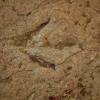
Dinosaur Footprints & Fossils
Source Institutions
In this activity, early learners simulate fossil prints in play dough or clay.

Dinosaur Count and Sort
Source Institutions
In this activity, learners sort and count different colored plastic dinosaurs by various attributes including tail length, whether or not the dinosaurs have horns, etc.
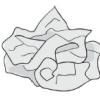
Crumple a Watershed
Source Institutions
Learners gain an intuitive knowledge of the physical aspects of watersheds by creating their own watershed models.
